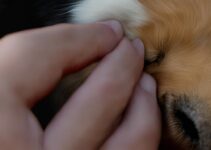Welcome to my guide on Basenjis, the incredible breed of dogs with distinct characteristics and traits. In this article, I will provide you with valuable insights into the Basenji breed, including their temperament, training, health issues, grooming needs, and more. Whether you’re considering adding a Basenji to your family or simply interested in learning about these fascinating canines, you’ve come to the right place!
Key Takeaways:
- Basenjis are unique canines with distinctive characteristics and traits.
- They are often referred to as the “barkless dog” due to their unique vocalization patterns.
- Understanding their temperament, health issues, and training requirements is essential for potential owners.
- Basenjis have a fascinating history and are known for their expressive eyes, glistening coats, and silent communication through yodeling sounds.
- Proper socialization and mental stimulation are important for Basenjis’ overall well-being.
The Fascinating History of Barkless Dogs
The history of barkless dogs, including the Basenji, is deeply intertwined with ancient Africa. These unique canines were selectively bred by African tribes for their exceptional hunting abilities. They were highly prized as hunting companions in dense forests where silence was essential for successful hunts. The Basenji, in particular, is believed to be one of the oldest dog breeds in existence. Evidence suggests that their lineage predates the expansion of agriculture, making them an ancient and treasured breed.
In ancient Africa, barkless dogs like the Basenji played a vital role in the hunting traditions of various tribes. Their extraordinary ability to hunt silently, without alerting the prey, made them invaluable assets. These dogs were highly sought after and carefully bred to ensure their silent hunting skills were passed down through generations. Today, the Basenji stands as a living testament to this remarkable historical legacy.
The Basenji breed gained recognition beyond the African continent when they were introduced to the Western world in the early 20th century. Explorers and travelers marveled at their unique characteristics and brought them back to their home countries, where they quickly gained popularity. The American Kennel Club officially recognized the Basenji in 1943, solidifying their place in the dog-loving community as a distinctive and treasured breed.
The Ancient African Connection
When we think of dogs, barking is often one of the first things that come to mind. However, the Basenji breaks this mold with its silent communication. This exceptional breed carries the ancient echoes of Africa’s hunting heritage, making them a fascinating piece of living history. From their origins in ancient Africa to their presence in modern households, the Basenji’s history continues to captivate dog enthusiasts across the globe.
Unique Characteristics of Basenji Dogs
The Basenji is a breed of dog with distinctive physical characteristics that set them apart. They are small to medium-sized dogs, measuring around 16-17 inches at the shoulder. Despite their compact size, they have a sleek and agile build that allows them to move with grace and speed.
Basenjis have short, smooth coats that come in various colors, including red, black, brindle, and fawn. Their coats are low maintenance and require minimal grooming. A quick brush every now and then is usually enough to keep them looking their best.
One of the most unique traits of Basenjis is their vocalization style. While they don’t bark like other dogs, they communicate through a variety of sounds, including yodeling, growling, and other vocalizations. This has earned them the nickname “barkless dogs” and adds to their charm and individuality.
Exploring the Temperament of Basenji Dogs
Basenjis have a temperament that is as unique as their vocalization style. They are independent, intelligent, energetic, and loyal dogs who require a special approach to training and care.
Independent Nature
Basenjis are known for their independence. They have a strong sense of self and can be aloof with strangers. This trait is deeply ingrained in their breed, as they were originally bred to work independently while hunting. While their independence can make training a challenge, it also adds to their unique charm and character.
Intelligence and Energy
Basenjis are highly intelligent dogs who require mental stimulation to thrive. They excel in activities that challenge their minds, such as puzzle toys and obedience training. Additionally, their energy levels are high, and they need regular exercise to stay physically and mentally fit. Daily walks, playtime, and engaging activities are essential to keep them happy and prevent boredom-induced behaviors.
Loyalty and Bonding
Despite their independent nature, Basenjis form strong bonds with their owners and are fiercely loyal. They thrive on the love and attention they receive from their human family and will often show their affection through playful antics and cuddles. Building a strong bond with a Basenji requires consistent training, positive reinforcement, and plenty of quality time together.
Basenji Training: Challenges and Rewards
Training a Basenji can be a rewarding yet challenging endeavor. These intelligent and independent dogs require a patient and consistent approach that focuses on positive reinforcement. Due to their strong will and tendency to be stubborn at times, traditional training methods may not be as effective.
One of the key challenges in training a Basenji is their independent nature. They are known for their ability to think for themselves and make decisions based on their own instincts. This independence can sometimes manifest as a reluctance to obey commands or a preference for doing things their own way.
However, with the right techniques and a positive reinforcement approach, Basenjis can become well-behaved and obedient companions. Positive reinforcement involves rewarding desired behaviors with praise, treats, or play, while ignoring or redirecting unwanted behaviors. By focusing on rewarding the behaviors you want to see more of, you can motivate and encourage your Basenji to learn and obey commands.
Canine Sports: A Rewarding Training Method
One effective way to train and engage your Basenji is through participation in canine sports. Basenjis excel in activities such as tracking, agility, and lure coursing. These sports provide mental and physical stimulation while tapping into the Basenji’s natural hunting instincts.
Participating in canine sports not only helps to channel their energy and prevent boredom but also strengthens the bond between you and your Basenji. These activities provide an outlet for their natural instincts and give them a sense of purpose.
Remember that training a Basenji requires patience, consistency, and understanding. With the right approach and plenty of positive reinforcement, you can help your Basenji reach their full potential and enjoy a well-behaved and fulfilling life together.
Basenji Health Issues: What You Need to Know

When it comes to the health of Basenji dogs, there are a few key issues that owners should be aware of. Dental disease is a common problem among Basenjis, so it’s important to prioritize regular dental care. This can include brushing their teeth regularly and providing chew toys or dental treats to promote good oral health. By taking proper care of their teeth, you can help prevent the development of dental issues later on.
Infections can also be a concern for Basenjis, so it’s crucial to ensure they receive their necessary vaccinations to protect against common bacterial and viral infections. Regular check-ups with a veterinarian can help ensure that your Basenji is up to date on their vaccinations and that any potential health issues are detected early.
Obesity is another health issue that can affect Basenjis. While they are an energetic breed that requires regular exercise, it’s important to monitor their diet and weight to prevent obesity. Providing a balanced diet and engaging them in regular physical activity can help keep them fit and healthy.
Finally, Basenjis can be prone to parasites, such as fleas, ticks, and worms. Regular testing and preventive medication can help protect your Basenji from these pesky pests. Maintaining a clean and parasite-free environment for your dog is crucial for their overall health and well-being.
A Guide to Basenji Grooming
Grooming your Basenji is a straightforward process due to their short and smooth coats. Regular brushing is recommended to keep their coats healthy and shiny. Use a soft-bristle brush or rubber grooming mitt to remove loose hairs and distribute the natural oils throughout their coat. This not only helps keep their fur clean and tangle-free but also promotes a healthy skin and coat.
While Basenjis are known for being clean dogs that groom themselves like cats, they do require occasional bathing. Use a mild, dog-specific shampoo and lukewarm water to gently cleanse their coat. Be sure to rinse thoroughly to remove any residue that may cause skin irritation. It’s essential to towel-dry them thoroughly after bathing to prevent any dampness from causing skin problems.
Taking Care of Their Ears
Basenjis have erect ears that are prone to wax buildup and infections. Therefore, regular ear cleaning is crucial to maintain their ear health. Use a dog-specific ear cleaning solution and cotton balls to gently clean the visible parts of their ears. Avoid inserting anything deep into the ear canal as it may cause damage. If you notice any signs of irritation or infection, such as redness, discharge, or a foul odor, consult a veterinarian for proper diagnosis and treatment.
Maintaining Overall Hygiene
In addition to coat and ear care, Basenjis, like all dogs, benefit from regular nail trims and dental care. Keep their nails at a proper length to prevent discomfort or injury. Use dog-specific nail clippers or a grinder and be careful not to cut into the quick, which can cause bleeding.
Brushing their teeth regularly is essential to prevent dental diseases such as tartar buildup and gum infections. Use a dog-specific toothbrush and toothpaste to gently brush their teeth a few times a week. This not only promotes good oral health but also helps prevent bad breath.
Living with a Basenji: Family Life and Considerations
When it comes to choosing a family dog, Basenjis can be a wonderful addition. Their affectionate nature and loyalty make them excellent companions. However, it’s important to consider their specific needs and characteristics to ensure a harmonious living arrangement.
Basenjis are known for their high energy levels, requiring one to two hours of exercise daily. This includes both physical and mental stimulation to keep them happy and content. Their independent nature means they thrive in households with active individuals who can provide the necessary activities and attention.
While Basenjis can adapt to apartment living, having access to outdoor spaces, such as a small garden or nearby park, is beneficial for them to explore and burn off their energy. The breed’s small to medium size makes them suitable for various living arrangements, as long as they have enough room to move around and stay active.
Finding a Basenji Puppy: Tips and Considerations
Looking to bring a Basenji puppy into your home? It’s important to navigate this process responsibly to ensure the well-being of both the puppy and yourself. Whether you choose to work with a reputable breeder or consider adoption, there are key factors to consider in your search for the perfect Basenji companion.
When searching for a Basenji puppy, it is essential to find a reputable breeder who prioritizes the health and temperament of their dogs. A reputable breeder will provide you with the necessary health clearances and documentation, allowing you to confidently welcome a healthy puppy into your family. Researching breeders, visiting their facilities, and meeting the puppy’s parents can provide valuable insights into their breeding practices and the environment in which the puppy was raised.
If adoption is on your mind, consider reaching out to Basenji rescue organizations. Adopting a Basenji in need not only provides a loving home but also supports the rescue mission. These organizations often conduct thorough assessments of the dogs in their care, ensuring they are ready to join their forever families. Plus, you’ll have the opportunity to provide a second chance to a deserving Basenji.
Regardless of your choice, responsible ownership is paramount when bringing home a Basenji puppy. This includes providing proper care, training, and a lifelong commitment to their well-being. Basenjis require mental and physical stimulation, so be prepared to invest time and effort into their exercise and enrichment needs. Remember, owning a Basenji is a lifelong journey filled with unforgettable moments and unconditional love.

Summary:
In your quest for a Basenji puppy, take the time to find a reputable breeder or consider adoption from a rescue organization. Responsible breeders prioritize the health and temperament of their puppies, while adoption provides a loving home for a Basenji in need. Whichever path you choose, responsible ownership entails providing proper care, training, and a lifelong commitment. By embarking on this journey with care and dedication, you’ll be rewarded with a lifelong companion who will bring joy and love to your life.
Conclusion
As I conclude this guide, I am reminded once again of the unique and fascinating nature of Basenjis. These barkless dogs have captured the hearts of many with their expressive eyes, glistening coats, and silent communication through yodeling sounds. Their history as ancient African hunting dogs adds to their allure, making them one of the oldest known dog breeds.
Basenjis possess distinctive physical characteristics and a temperament that sets them apart from other canines. Their independent yet loyal nature requires careful training and socialization to ensure they thrive in a family environment. With proper exercise, mental stimulation, and a structured training approach, Basenjis can bring immense joy and companionship to their owners.
When considering a Basenji, it’s important to be aware of their health needs, grooming requirements, and responsible ownership. Regular veterinary care, dental hygiene, and preventive measures against parasites are crucial for their well-being. While their short and smooth coats require minimal grooming, attention to their ears and overall hygiene ensures a happy and healthy Basenji.
Ultimately, Basenjis are unique canines that offer a one-of-a-kind companionship experience. Their barkless nature, distinct characteristics, and rich history make them a breed like no other. If you are ready to provide the love, care, and commitment these remarkable dogs deserve, a Basenji may just be the perfect addition to your family.
FAQ
Are Basenjis really barkless?
Yes, Basenjis are often referred to as “barkless dogs” because they do not bark in the traditional sense. Instead, they communicate through yodeling, growling, and other vocalizations.
Where do Basenjis originate from?
Basenjis were originally bred in ancient Africa for hunting purposes. They were highly prized for their ability to remain silent while on the hunt.
What are the physical characteristics of Basenjis?
Basenjis are small to medium-sized dogs with a sleek and agile build. They measure around 16-17 inches at the shoulder and weigh between 22 and 24 pounds. They have short, smooth coats that come in various colors.
What is the temperament of Basenjis?
Basenjis are independent, intelligent, and energetic dogs. They form strong bonds with their owners and are loyal. While they can be aloof with strangers, they can be affectionate and loving with their families.
Are Basenjis easy to train?
Basenjis can be challenging to train due to their independent nature, but with a patient and consistent training approach using positive reinforcement, they can excel. They also thrive in canine sports that provide mental and physical stimulation.
What health issues are common in Basenjis?
Basenjis can be prone to dental disease, bacterial and viral infections, obesity, and parasites. Regular dental care, vaccination, preventive measures, and routine check-ups with a veterinarian are important for their health.
How much grooming do Basenjis require?
Basenjis have short and smooth coats that require minimal grooming. Regular brushing and cleaning of their ears are important, but otherwise, they do not require extensive grooming.
Are Basenjis good family dogs?
Basenjis can make excellent family dogs. They are affectionate and loving towards their families. However, they have high energy levels and require one to two hours of exercise daily. They do well in households with active individuals.
Where can I find a Basenji puppy?
It is important to find a reputable breeder or consider adopting from a rescue organization. Responsible breeders prioritize the health and temperament of their puppies. Adoption provides a loving home for a Basenji in need.
What makes Basenjis unique?
Basenjis are unique canines with distinct characteristics such as their barkless vocalization style, ancient African origins, and independent yet loyal temperament. They require specific care and understanding from potential owners.



